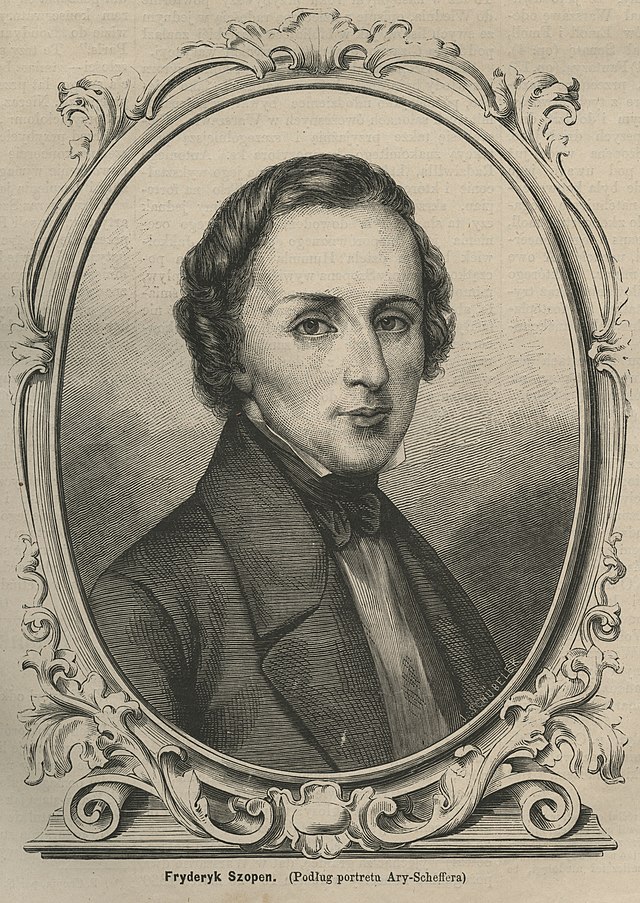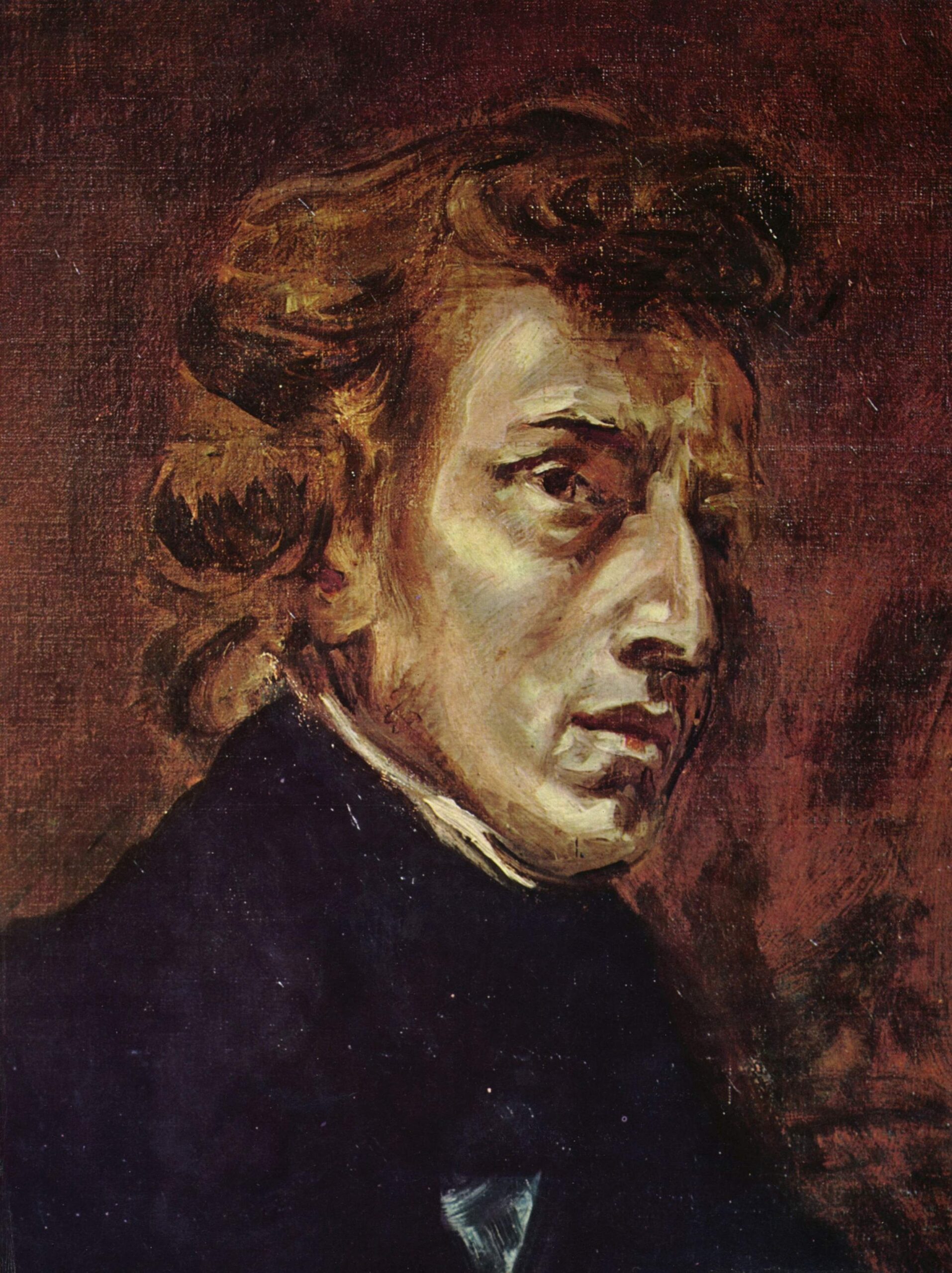Biography
INSPIRED BY PASSION

Chopin is born
Fryderyk Chopin was born on 1 March 1810 in the village of Żelazowa Wola, near Sochaczew, though the baptismal certificate states 22 February. The discrepancy remains unresolved, but the 1 March date was always celebrated by Chopin and his family.
His father, Mikołaj Chopin, was a Polonised Frenchman who had come to Poland as a young man and worked as a tutor. Fryderyk’s mother, Tekla Krzyżanowska, was of Polish descent. He was the second of four children, with an older sister, Ludwika, and two younger sisters, Izabela and Emilia.
Musical beginnings
Chopin’s early musical education began in a home filled with music, where both his mother and father were musicians. His mother played the piano and sang, while his father played the flute and violin. At just six years old, he began formal piano lessons with Czech teacher Wojciech Żywny, who quickly recognized his prodigious talent. By the age of seven, Chopin was already composing polonaises, marches, and variations, gaining attention as a child prodigy. As a young boy, he performed in the salons of Warsaw’s aristocracy, further honing his skills. His early training continued under the guidance of notable teachers such as Józef Elsner, who taught him composition, and Wilhelm Würfel, who likely contributed to his piano technique. Chopin’s education was not confined to music alone; he also attended the Warsaw Lyceum, where he received a well-rounded education. His summers spent in rural Poland deepened his connection to Polish folk music, which would later influence much of his compositional style.
Move to Paris and Rise to fame
Chopin’s move to Paris in 1831 led to a rapid rise in fame. He quickly became a key figure in Parisian society, befriending artists like Liszt, Berlioz, and Mickiewicz, and inspiring a fashion craze. His success allowed him to mingle with the Polish émigré community, but the demands of fame made it hard for him to focus on composing.
During this time, he completed the Études Op. 10, groundbreaking works that changed piano technique. In 1836, he began a relationship with the writer George Sand, which would significantly affect his life and music.
By 1838, after an unsuccessful engagement and health struggles, Chopin’s creativity flourished. On a trip to Majorca with Sand, despite battling tuberculosis, he composed the Preludes Op. 28 and other major works, marking a turning point in his artistic development.
love and relationships
Fryderyk Chopin’s relationship with the French writer George Sand was both pivotal and turbulent. They met in 1836, after Chopin’s engagement to Maria Wodzińska ended. Initially repelled by Sand’s boldness, Chopin eventually grew close to her, and by 1838 they became romantically involved.
Sand provided essential care during Chopin’s frequent bouts of illness. Their time in Majorca in 1838 marked a key moment, where Chopin composed some of his most famous works, including the Preludes, Op. 28. Despite his ill health, he found creative inspiration in the challenging surroundings.
The couple spent several summers at Sand’s estate in Nohant, where Chopin composed prolifically, producing works like the Nocturnes, Op. 48, and Ballades. However, by 1847, their relationship began to deteriorate, mainly due to tensions with Sand’s family. The emotional strain affected Chopin deeply, and after their separation, he struggled to compose. The end of their relationship was a devastating blow, from which Chopin never fully recovered, both artistically and emotionally.

The Final Years
In the 1840s, Chopin spent productive summers at George Sand’s Nohant estate, composing works like the Ballades and Nocturnes. However, tensions with Sand’s family, especially her son, led to their breakup in 1847. Heartbroken, Chopin’s creative output declined, and he completed only a few minor pieces.
His health, already fragile, worsened. After the separation, he struggled with loneliness and was unable to compose. In 1848, he gave his last concert in London, but the exhausting travel and damp climate worsened his tuberculosis. Returning to Paris, he was cared for by friends and family but remained weak.
In the summer of 1849, his sister Ludwika arrived, but it was too late. Chopin passed away on October 17, 1849, at 39. His death deeply affected Paris, and many of the city’s elite attended his funeral.
